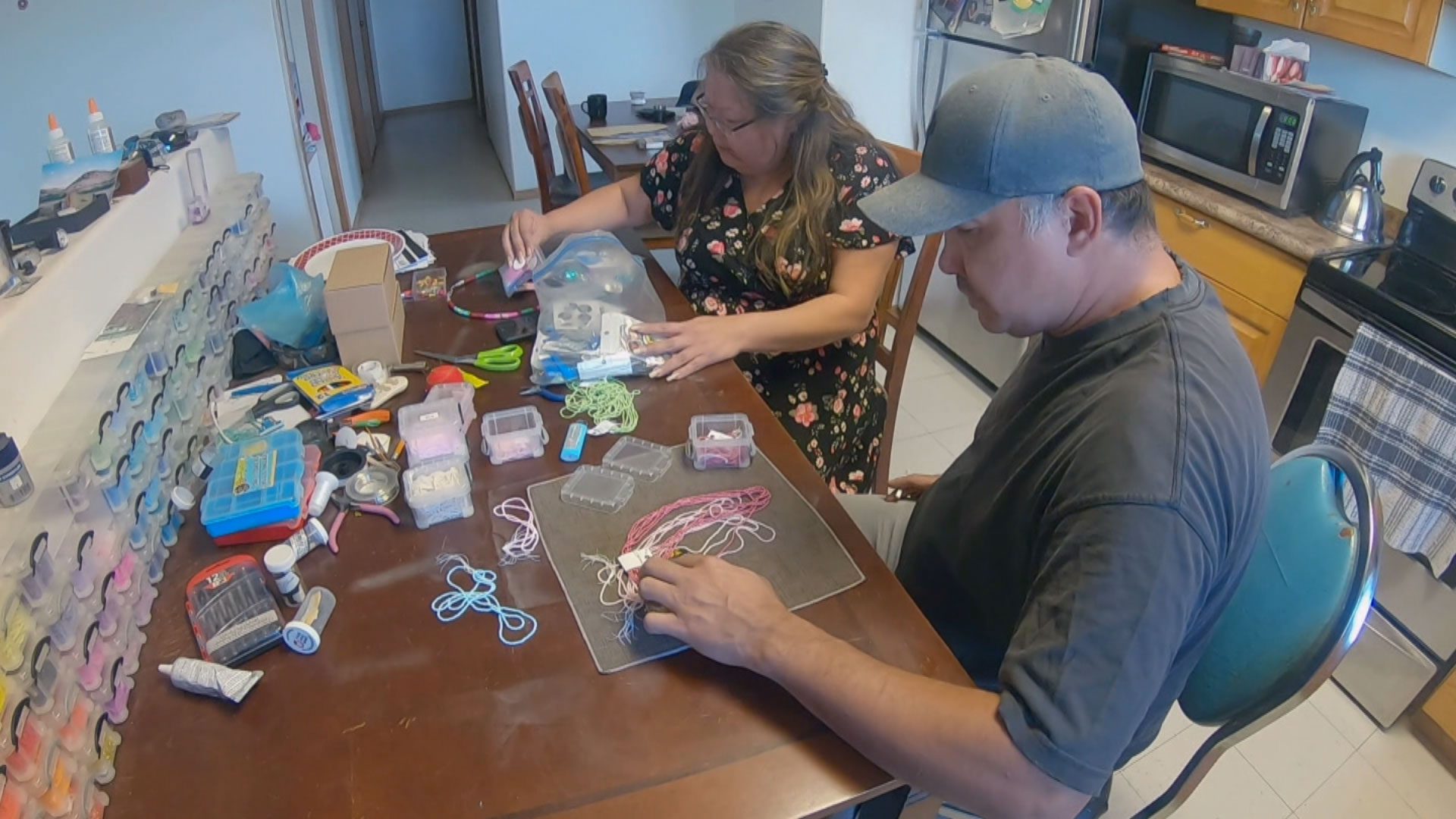
Sign outside Whitefish First Nation in Alberta. Photo: Chris Stewart/APTN
Two members of Whitefish First Nation in Alberta say they are barred from running for chief – or even voting in band elections – because of their relationships.
Lorna Jackson-Littlewolfe and Karen McCarthy are each seeking to overturn the band’s election code.
“You can run if you are single,” said Jackson-Littlewolfe, who has been living with her partner for eight years. “You can apparently run if you are separated, divorced.
“But you can’t run because you are common-law. I don’t get it.”
So Jackson-Littlewolfe said she filed for relief in Federal Court, asking for the 1960 election rule to be updated and a new election called.
Watch Chris Stewart’s story:
“I personally found that offensive because I do know we have leaders that were separated or divorced,” she said, “and they were eligible to run, but me – living with my common-law relationship – or any other previous candidate were unable to run.”
Jackson-Littlewolfe said the rule prevents dozens of band members from becoming a chief or a councillor.
Statistics from the 2016 national census showed Whitefish, which is part of Saddle Lake Cree Nation, had 215 common-law relationships compared to 170 marriages.
Saddle Lake is located approximately 180 kilometres northeast of Edmonton.
Saddle Lake updated its election law in 2017 to allow common-law members to run for office.
McCarthy has filed for a separate judicial review.

Bill C-31
She said she is barred from participating in the election because she lost her status after marrying a man without status, even though she said her membership with the band was reinstated with the passing of Bill C-31, which amended the Indian Act in 1985.
“If we were to have a referendum, we would all be allowed to vote. That’s just the way the referendum laws are set up,” said McCarthy.
“So how come I can’t vote in the election?”
McCarthy suggested the First Nation excludes certain members to keep the voting list small.
“Because it’s a corrupt system that we have right now,” she alleged. “And there are people in there who do not want to give up that stronghold that they have on the leadership positions.”
Eviction notice
McCarthy said she received an eviction notice to vacate her band-owned house, which she believes is in retaliation for her legal action.
Whitefish Chief Stan Houle referred questions from APTN News to the band’s law firm.
The firm did not respond to APTN’s phone messages and emails seeking comment.
Rob Louis, CEO of the Band Members Alliance and Advocacy Association of Canada, said he is helping McCarthy with her case.
He believes victims of Bill C-31 are being discriminated against.
“It’s pretty simple,” said McCarthy. “My judicial review is that I’ve appealed the voters’ list and my right to vote. I’ve asked them to overturn that because I am a full band member according to the membership that we fall under, which is Section 11.
“And I’ve asked for a re-election. Because I don’t feel that the election that occurred on April 29 and May 6 is a valid election.”
McCarthy said she has also filed a complaint with the RCMP alleging election fraud.










